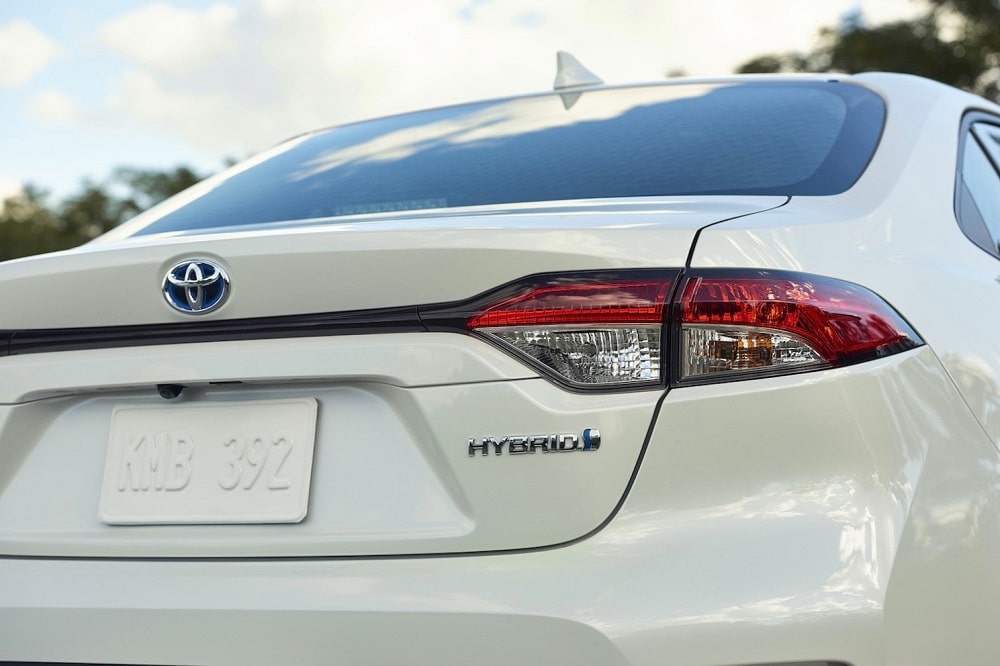Hybrid vehicles can be a great option for high-mileage city drivers or environmentally-conscious consumers, but they are not always the best choice for everyone. Understanding the differences between gasoline-powered, electric and hybrid vehicles will help you choose the best car or SUV for your lifestyle.
To help learn the pros and cons of owning a hybrid car, CarPro spoke with Greg Brannon, AAA’s director of automotive engineering and industry relations. Read more of the information he shared below.
Hybrid vs. Electric vs. Gas Vehicles: What's the Difference?
A hybrid vehicle is a combination of an electric battery pack and a gasoline combustion engine. A hybrid vehicle is all about maximizing fuel economy and allowing it to get the best out of a gallon of gas.
An electric car is reliant on and powered exclusively by a battery and electric motor. When the battery runs low, it must be recharged.
Types of Hybrid Vehicles
Mild Hybrid: This vehicle has an electric battery pack and a gasoline combustion engine. The mild hybrid never runs exclusively on electricity, but it does help the vehicle be more fuel efficient and lowers emissions. The electric battery charges by regenerative braking.
Pros of Mild Hybrid Vehicles:
- It’s a step in the right direction if you’re environmentally conscious
- More fuel efficient than a conventional gasoline-powered car
- Lower emissions than a standard combustion vehicle
- The cost of a mild hybrid is lower than a full hybrid and EVs
Cons of Mild Hybrid Vehicles:
- Like other hybrid vehicles, you’ll probably pay more for insurance
- You won’t save as much money driving a mild hybrid versus a full hybrid and EV
- You have two engines — gas and electric — so repairs will be higher than a gas car
- There are no federal tax credits for a mild hybrid vehicle
In the market for a mild hybrid? Here's a few options we've tested and reviewed: Ram 1500 Trucks with e-Torque, Jeeps with e-Torque, Kia Sportage and Hyundai Tucson.
Full Hybrid: This vehicle can run completely on its electric battery for short distances or run on a combination of the electric battery and gas engine at slower speeds, such as in a neighborhood. The electric battery is recharged as the gas engine is running.
Pros of Full Hybrid Vehicles:
- Fuel economy is better than a 100% gasoline engine and a mild hybrid
- Fewer emissions than a conventional gasoline car and a mild hybrid
- Better for the environment
Cons of Full Hybrid Vehicles:
- Costs more than a mild hybrid
- Both a gas and electric engine to maintain and repair
- No federal tax credits
Considering a full hybrid? Here's our take on the Toyota Prius, Ford Maverick and Honda Accord.
Plug-In Hybrid: Plug-In Hybrid Electric Vehicles (PHEVs) have both an electric battery and a combustion engine. The vehicle’s main source of power comes from the electric battery. When the electric battery runs low on power, the gas engine can take over so you can continue driving. The electric battery can be recharged at home, at a charging station, by running the combustible engine and regenerative braking.
Pros of Plug-In Hybrid Vehicles:
- There are federal tax credits for some PHEVs
- Fuel efficient
- Zero emissions when running solely on the electric battery
Cons of Plug-In Hybrid Vehicles:
- More costly to drive off the lot than a traditional gas engine
- Maintenance and repair of two engines — gas and electric
- If the electric battery is completely drained, the gas engine component will get only slightly better gas mileage than a traditional gas vehicle
Consider checking out some of these plug-in hybrids: Chrysler Pacifica, Hyundai Santa Fe, Kia Sorento, and Volvo XC60.
How Does a Hybrid Switch from Battery to Gas?
The battery will only warn you if there's a problem with it. Otherwise, the car takes care of all of the balancing between the battery on board and using the engine to power the car or recharge the battery.
For example, if you're sitting for a long time in a hybrid and you're using the air conditioner, eventually the engine will turn on and recharge the battery so you can continue using the air conditioner. The air conditioner is running off of the hybrid battery instead of running as an accessory of the engine.
Is a Hybrid Less Powerful Than a Gasoline-Powered Car?
In most cases, hybrid vehicles are a lot quicker. Depending on the automaker's strategy, sometimes hybrids are used to get better fuel economy, which means they'll have a very small engine and an electric drivetrain.
Other manufacturers will use a similar-sized gasoline engine to what you would normally have, maybe making 300 horsepower or more, and then augment it with a hybrid drivetrain. In that case, you can have, for example, the power of an eight-cylinder, but just use the six-cylinder to power the vehicle in combination with the hybrid drivetrain.
There are also what we call "hypercars" (ex. some Porsches and Ferraris) that use a hybrid drivetrain strictly for the purpose of generating more power and performance out of the vehicle.
How Quickly Will Hybrid Vehicle Savings Occur?
The more expensive gas becomes, the quicker you can get to cost parity or savings from a hybrid. However, if gas is moderately priced like it is right now in the U.S., that payback could take seven years or more because hybrids are more expensive. Here’s why: They have two complete drivetrains in them as opposed to just the one that you might have in a gasoline vehicle or even the one that you have in a battery electric vehicle. The hybrid brings both of those things together, and, as a result, is more costly to purchase and maintain if you have to end up replacing that battery pack.
If you’re someone who does a lot of driving and you live in the Northeast or California where gas prices are quite high, you might find that the payback is a lot quicker in those markets. AAA has a tool called Your Driving Costs that compares gas prices in your state and the mileage that you drive each year to find those break-even points.
Checklist: Is Hybrid or Gasoline-Powered Right for Me?
Use the checklists below to determine which type of vehicle is right for your lifestyle. If you have more checks in one section than another, you’ll find your answer.
A hybrid car may be the right choice if:
- I have a shorter commute
- I don’t take long road trips
- I drive mostly in city, suburbs and rural areas
- Having a smaller carbon footprint is important to me
- I’m not worried about higher maintenance costs and repairs
- I’m OK with paying more for the vehicle upfront
- I live in California or New England where gas prices are especially high
- I don’t want to worry about range with a fully electric vehicle
- I want better fuel economy
- I understand my insurance rates may go up
A gas powered car may be the right choice if:
- I have a long commute
- I like to take vacations that involve driving long distances
- I do a lot of highway driving
- I want a bigger selection of vehicles to choose from
- I don’t want to pay extra for a hybrid
- I want to keep my maintenance and repair bills lower
- I don’t want to worry about when and where to charge a vehicle
- I’m not concerned about getting a potential federal tax credit for buying a PHEV or EV
- Gas prices don’t affect my driving habits
- I prefer lower insurance rates
Pros and Cons: Hybrid vs. Gas-Powered
To wrap it all up, let’s look at the pros and cons of hybrid vs. gas-powered.
Pros of owning a hybrid
- Good fuel economy — the higher the price of gas, the quicker a hybrid pays for itself
- Some hybrids get up to 600 miles of range on a tank of gas
- Resale value holds pretty well, especially Toyota vehicles
- No loss of power/acceleration versus a gas-powered car
- Fewer emissions than a gas-powered car
Cons of owning a hybrid
- Upfront cost of the hybrid is more expensive than a gasoline-powered car
- More maintenance — hybrids have two systems, a gas engine and a lithium battery system
- Higher maintenance costs
- If out of warranty, replacing the lithium battery will cost between $2,000-$4,000
- There is some degradation in the lithium battery in cold weather
Hybrid or Gas-Powered: Which Will You Choose?
A hybrid will fit your lifestyle if you drive in a state with high gas prices, since it’ll pay for itself quickly with savings at the pump. It’s better for environmentally conscious drivers with its lower emissions.
A hybrid may not make sense for those that do a lot of driving since the upfront cost and cost of ownership is higher than a gasoline-powered car. Use our checklist above to determine which is best for you.
Find your perfect car using our inventory search. Find a CarPro near you, sign and drive.
Greg Brannon began his career with AAA over 25 years ago as an emergency roadside service counselor. During his tenure, he has held positions in Market Research, Strategy and Plans, Member Relations and Business Markets learning many facets of the work AAA does to provide exceptional service to its nearly 60 million members.

